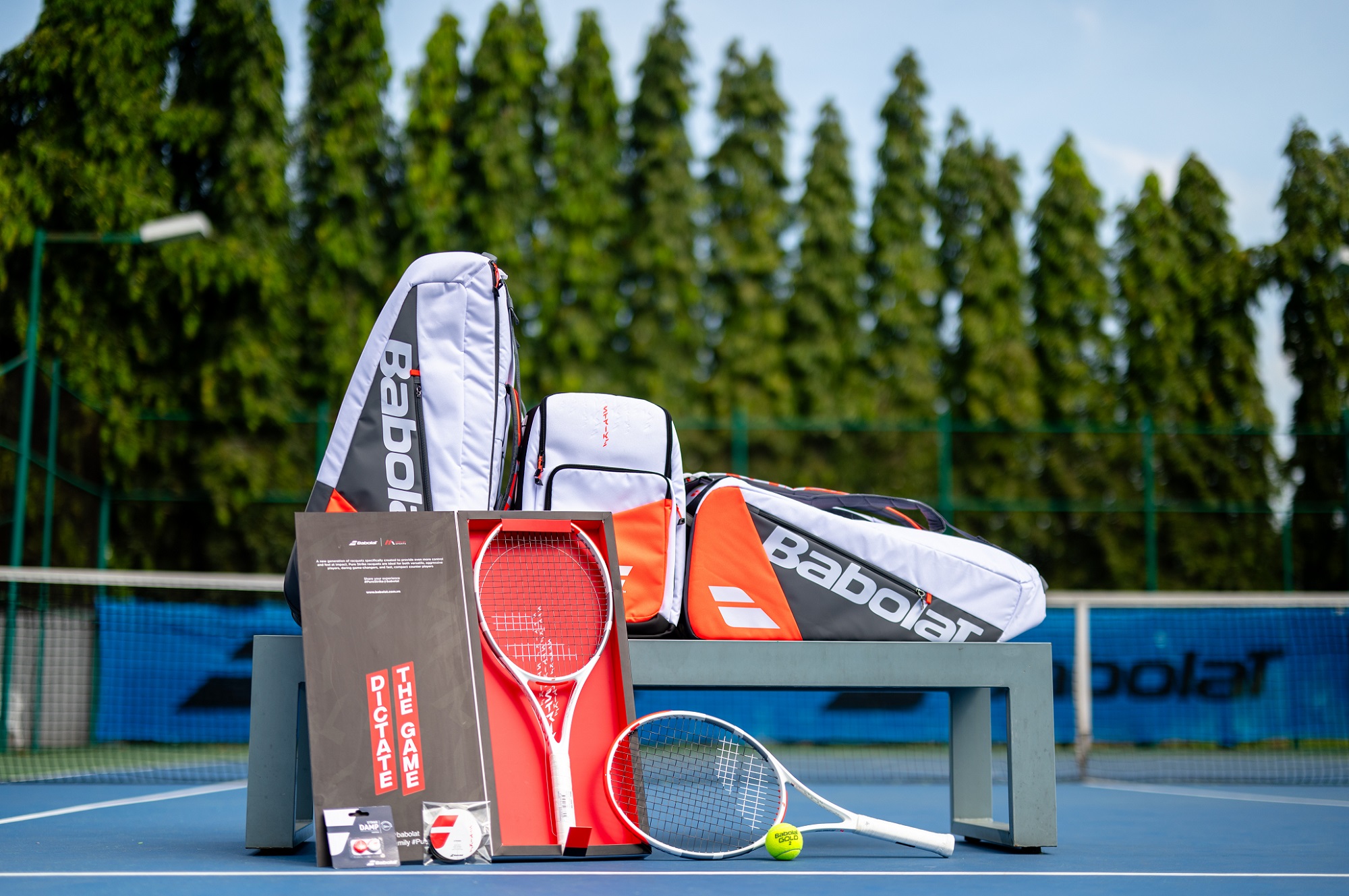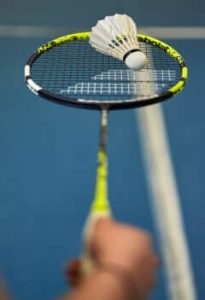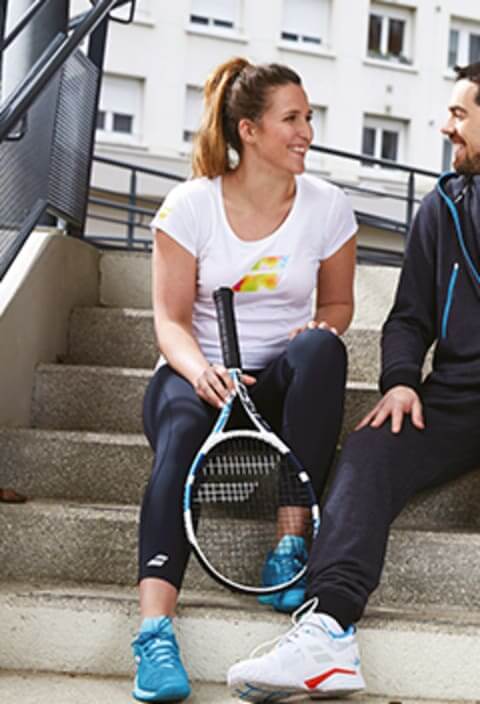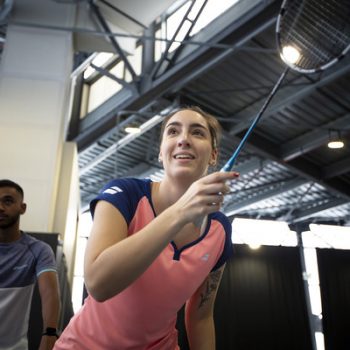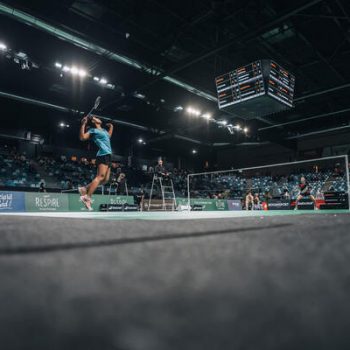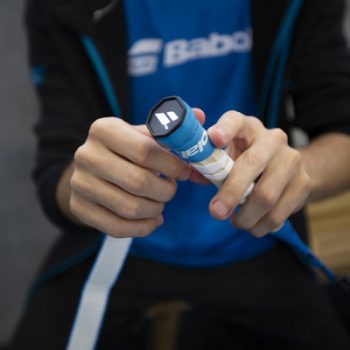Top những kĩ thuật tạo động lực cho người chơi cầu lông.
Mindset is really important when it comes to playing sport. Try these four top techniques, tested and approved by Julien Fuchs, manager of the Pôle Espoir Badminton training centre in Strasbourg and an ASPTTS sports federation captain to boost your badminton performance:
• Focus on your inner monologue for positive thoughts;
• Use training plans to set yourself goals;
• Train as a group for team motivation;
• Put together a playlist to motivate yourself during training.
Working on your mindset in advance of a match can really boost your game. Although physical training always plays a central role in any sport, mental preparation is just as important when it comes to upping your game. So, when it comes to achieving your goals, what are the secrets of a successful mindset?
1. The inner monologue: how to be positive
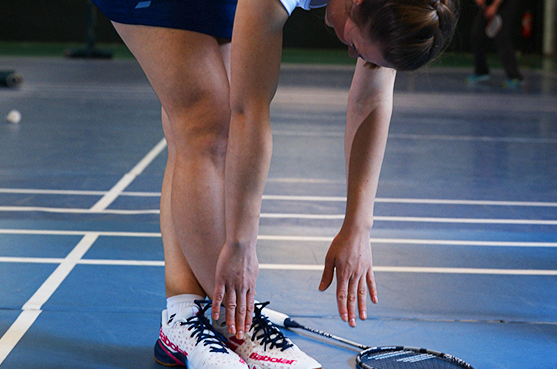
One of the most important “mental prep” exercises is the inner monologue: this personal exercise focuses your thoughts on the goals you have set yourself and helps you take a positive approach to achieving them.
Depending on your personality and behaviour, you need to find the right words to help you deal with your frustration, stress, and fear. Inner monologues are simple pre-match exercises. “All players have a pre-match routine. Some have a notebook containing a few positive phrases, others take a moment for themselves, listen to music, or say something positive after each point, etc.
As with physical exercises, it is best to practice mental preparation on a regular basis. According to Julien, how often you practice depends on what you want to achieve. “During training, we used the following exercise: we transformed all negative sentences into positive ones. Negative words were a big no-no!”
If a player finds pre-game drills tough going, Julien has another trick up his sleeve. “I show them a video of them playing so they can see their body language. I stress how important it is to show their opponent that they want to win, to focus on their strengths, and to always think ahead to the next point.” This type of player shows signs of annoyance and frustration, which sends out certain signals and makes their opponent feel more confident.
2. Using training plans to strengthen your mindset
The training plan is a roadmap to achieve your final goal. It is a programme containing important information such as the types and frequency of exercises you should do. At the Pôle Espoir, Julien explains that “some players want to perform better in international competitions, major championships such as European championships, or more national competitions.” But how do you work out how many exercises you need to include in your training plan? According to Julien, the amount of training you do depends on when the competition is going to take place: – The further away your competition, the more emphasis you should put on physical exercise: “We plan a programme of fitness exercises, with much longer sessions and weight training.” – The closer your competition, the more you need to concentrate on mental preparation: “The sessions are much shorter but more explosive.” Julien advises some of his players to use special techniques to exercise their minds: “Yoga, meditation, sophrology, and breathing exercises are becoming more and more popular,” he says. Julien has one last word of advice for the players in his training hub: “I always tell my players to have a solid plan, and to be actors in that plan”.
3. Group training: how to use the team spirit to boost your game
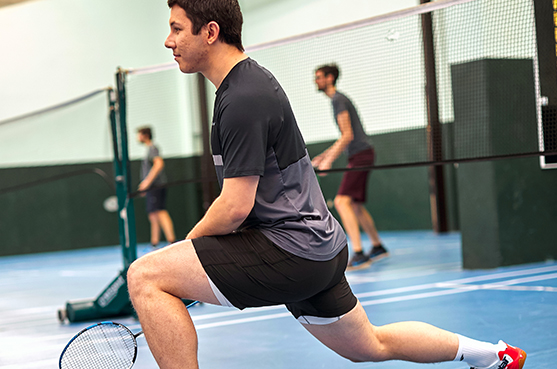
Group training is a great way for players to motivate each other. In fact, it’s much more rewarding to train with other players with similar goals, such as achieving a better performance and winning together. “If there’s a healthy atmosphere and the group gets along, and if players all look out for each other’s back, that’s a real bonus!”
It’s important to work on mutual support and group cohesion so players get on well together – in fact, there’s no better way to boost the team spirit. Among the regular activities organised by Julien are “hiking, running, and cycling where – as the name suggests – one player runs and another cycles or treks in the mountains, and sometimes abroad!”
Multi-player training is also an important component of international matches. Group life makes you a better listener, and helps you interact and integrate with others – important qualities for any team player. When a player travels to a regional, national, or international competition, he or she learns to act as part of a team and to form relationships with other people more easily. “We went to Réunion with the young players from the Pôle Espoir…and within a day they had made new friends. They find it easy to fit in almost immediately.”
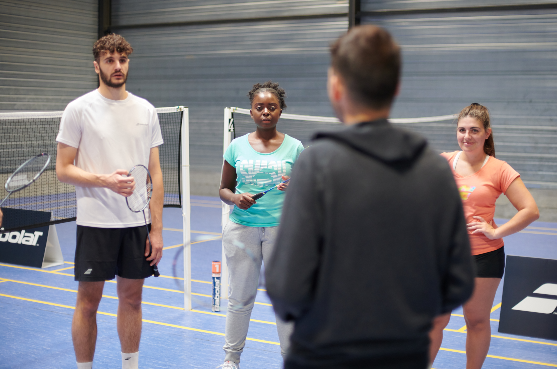
4. Expert tip: put together a playlist to motivate you and train longer
Music is still a good way to motivate yourself during training, especially “circuit training.” The positive impact of music on the mind can boost a player’s physical abilities because it passes the time more quickly and makes physical effort seem less strenuous.
Each player has his or her own musical preferences, but as a general rule Julien recommends music with a rhythm, especially since “if I play music with lyrics, players start to sing or hum!” To stay focused, it is therefore best to opt for “music with a rhythm and no lyrics – the sort you hear in gyms.”
Before competitions, it is also a good idea to put together your own playlist to stay focused. There is no such thing as a perfect style, but Julien advises you not to listen to music that is too aggressive: it might have the opposite effect to the one you want.
Your mindset has a big impact on your game. The important thing is, first of all, to work out your goal. Take time to test the various techniques suggested by Julien and find out which one suits you best: the inner monologue to stay positive, training plans to keep an eye on your priorities and organise your game, group training to motivate you as a team, and finally, the playlist to give you a boost before, during, and after matches or training sessions.
Bài viết này hữu ích với bạn?
